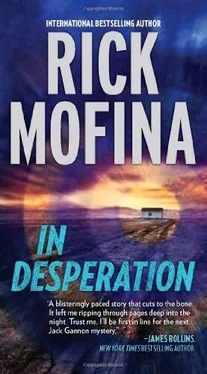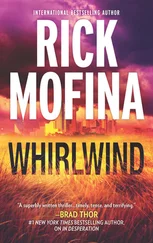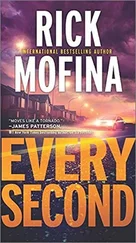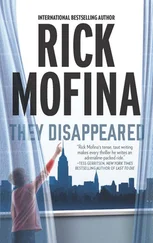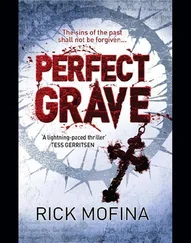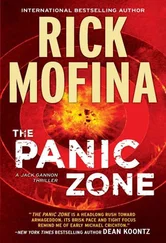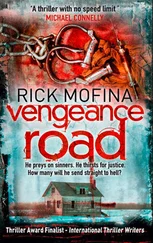A few seconds later, as the man and girl neared their truck, a siren yelped and an unmarked police car, dash light and wigwag grill lights flashing, roared from nowhere to within inches of the truck, boxing it in.
At the same time, detectives, guns drawn and badges displayed, approached the man while a voice over a loudspeaker shouted orders.
“Police! Get down on the ground-now!”
“Why?” The startled man put his hands up and looked to the girl. Two female detectives had grabbed her and were pulling her away.
“Daddyyy!”
The man was handcuffed.
“What the hell are you doing? What’s going on?”
Hackett and Larson, watching from the far end of the lot, trotted to the scene. Beyond them, news crews scrambled to record it. Some people in the restaurant began taking pictures with their camera phones. A few hurried to the parking lot, where a crowd gathered. Vanita introduced herself to a detective who told her to wait near his car.
Gannon arrived and approached the scene.
Afraid and confused, the little girl was placed in the front seat of a police car. Hackett and Larson showed their ID, then compared her to the photo of Tilly Martin. Not even close, Hackett thought.
“What’s your name, sweetheart?” Larson asked.
“Melissa Hanley,” she said through tears. “Are we in trouble?”
A few yards away, Melissa’s father, Doug Hanley, demanded to know why he was arrested. A detective wiped the mud from his plate.
This was not Lyle Galviera’s pickup truck.
It took Tempe Police and the FBI over half an hour to sort out and confirm that Doug Hanley was Melissa Hanley’s father and that they lived in Kingman, where Hanley was a carpenter and Melissa’s mother, Rachel, was a bank teller. Doug and Melissa had driven down to Tempe to get Rachel, who was visiting her mother, Melissa’s grandma.
Police apologized to Hanley for the alarm and inconvenience caused by the arrest but stressed that under the circumstances it was the right call. Zern asked Hanley to consider what he would want police to do if Melissa were taken under the same circumstances as Tilly Martin.
Gannon called Cora and told her what had happened.
Night was falling when he returned to his sister’s house.
In the wake of the takedown in Tempe, the FBI hotline continued receiving tips, most of them vague. A funereal air enveloped Cora’s home as the darkness outside deepened.
She’d refused food, sedatives, even rest.
Sitting alone, she stared at photos of Tilly. Between news reports and talking with the WPA, Gannon watched Cora, studying her anguish as time swept by. Seeing her suffering had inexplicably resurrected the pain he’d shouldered when their parents were killed.
He’d gone to the crash site.
He’d arranged the funeral.
He’d shaken with rage against Cora because their parents had died looking for her. They’d died not knowing anything about her life since the night she’d run off and destroyed their family. And there she was, flipping through memories of the life she’d created away from the family she’d devastated.
There she was, subjecting him to it.
He went to her.
“I have to know,” he said.
“Know what?”
“Why didn’t you come home? Mom and Dad died searching for you. They never knew they had a granddaughter. Why didn’t you come home?”
She met his stare with a vulnerability that bordered on near defeat.
“Please, Jack, don’t push me on this now.”
“I deserve to know.”
“I can’t tell you. I can’t. Stop asking me. This is not about me, Jack. You have to help me find Tilly.”
Gannon said nothing as one of the TV news reports pierced the tension. A commentator on Tilly’s case observed how most kidnappings involving cartels are revenge actions.
“I’m afraid to say but they almost always end horribly.”
Later that night about an hour after Cora fell asleep, she woke.
It was precisely the same time the kidnappers had entered her home. Realizing it had now been nearly twenty hours since Tilly was taken, Cora was overwhelmed with fear and released a long, anguished scream.
“Tillyyy!”
Startled from sleep in the sofa chair where he sprawled, Gannon was haunted by how his sister’s wail was identical to the one he’d heard in the morgue in Juarez.
Somewhere in Greater Phoenix, Arizona
The whine of the meat saw’s electric blade filled the night air.
Rising from the Golden Cut Processing Plant, it echoed over the forgotten piece of industrial wasteland occupied by the plant, the Coin-O-Clean Car Wash, Odin Tool & Die and the Sweet Times Motel.
Several years back, the Sweet Times had been a favorite of truckers. Sitting across from the Golden Cut, the motel had been lovingly cared for by the original owners, a retired Navy cook and his wife.
It had offered guests a small restaurant, and flower gardens everywhere.
But the restaurant was gone and the little gardens died long ago, leaving dirt patches that encircled the property like a disease. Chipped paint ravaged the motel’s exterior walls. Nearly half of the doors were fractured from being kicked in and the neon sign only lit the word Time, as if it had run out on a dream. The motel, now a refuge for down-and-out hookers, crackheads and outcasts, was managed by an embittered alcoholic with green teeth, who told every guest, “I don’t give a rat’s A what you do in there-it’s sixty bucks cash for every twenty-four hours up front.”
Several beer cans bobbed in the pool’s brown water, near the shallow end and Unit 28. This was a deluxe suite of adjoining rooms. Inside, the lights had been dimmed. The two male guests were surfing TV channels, monitoring news reports on the kidnapping of Tilly Martin. The screen’s glow flickered on their faces and the room.
An assortment of empty take-out food containers and a bag of fruit covered the small table. The desk near it had an array of prepaid cell phones. The phones would be used for one call then destroyed.
Two police uniforms hung in the room’s closet, ready for use. Under one bed, there were two AK-47 assault rifles and four Glock-20 semiautomatic pistols. At the edge of one of the two beds, there were three portable digital police scanners. Their volumes were low but the men were listening. They understood the codes.
Now, as they watched the TV news reports, their concern continued to grow. It seemed all of Phoenix was looking for Tilly.
“You did not answer me, Ruiz. What do we do now?” Alfredo, the younger man, asked in Spanish. “The bitch disobeyed the order and went to police. Now she’s got the damn FBI involved!”
As with Alfredo’s other questions, Ruiz’s response was silence.
Until now, Ruiz had hidden his anger over the situation. This time, he reached for his knife. The glint of its blade reflected in the TV light as he cut into a large apple. He placed the first slice carefully into his mouth and chewed slowly.
Chewing helped Ruiz think.
He knew Alfredo was less experienced in these matters and therefore worried. Let him ramble with his questions.
“So what are we going to do, Ruiz?” Alfredo opened a soda. “In Mexico, a case like this is business. People don’t trust police. They don’t go to police.”
“Alfredo-” Ruiz pointed the knife at him “-you knew this one would be different, or did you forget that after you took your extra advance payment.”
“Yes, but she went to police.”
“It was to be expected.”
“So what do we do? This creates a problem for us, for the operation. It is our job to set up the arrival of the sicario, to make sure everything goes smoothly for him. And now-” Alfredo thrust his finger at the screen as the clip of Cora’s press conference plea and photographs replayed. Again, the entire screen filled with the artist’s sketch of one of the suspects-the one resembling Ruiz. “And now your face is shown over and over for all of America and the world to see, Ruiz!”
Читать дальше
